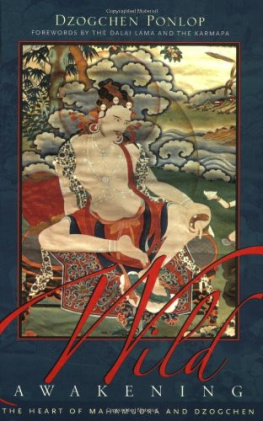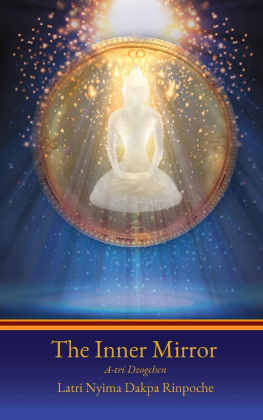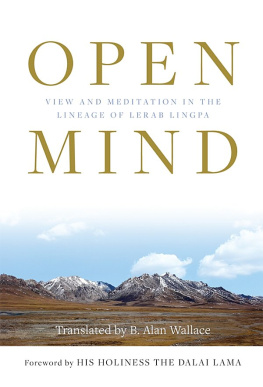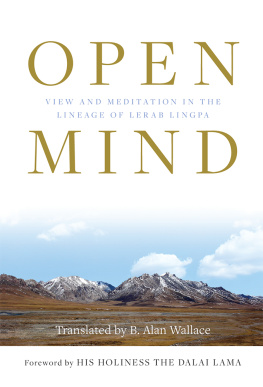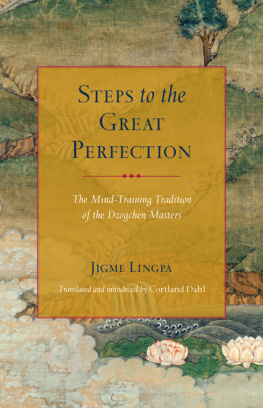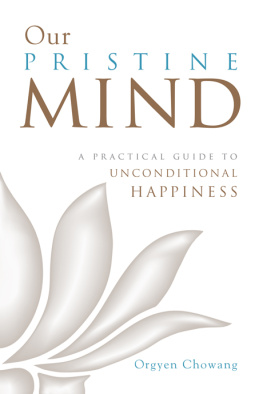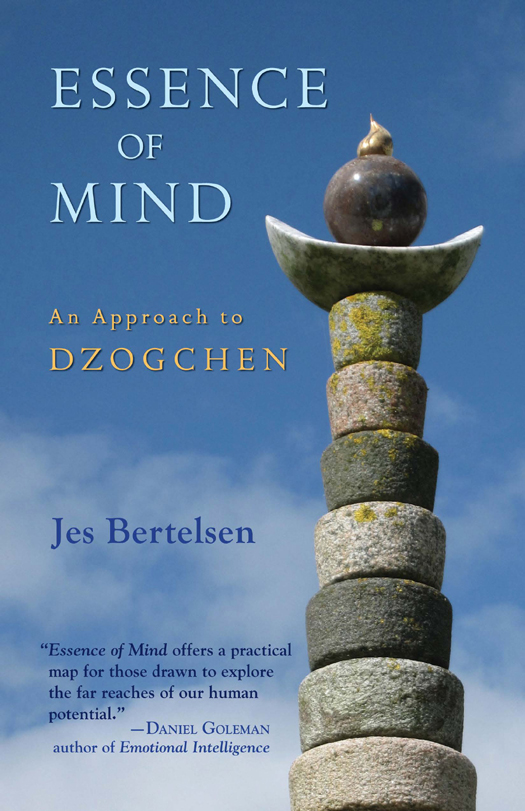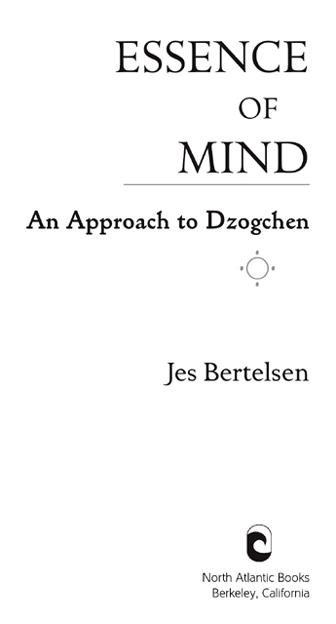eISBN: 978-1-58394-632-9
Copyright 1994, 2013 by Jes Bertelsen. Translation by Marianne Bentzen, 2013. Original Danish edition, Nuets himmel, published by Borgens Forlag, Mosedalvej 15, DK-2500 Copenhagen Valby, Denmark. All rights reserved. No portion of this book, except for brief review, may be reproduced, stored in a retrieval system, or transmitted in any form or by any meanselectronic, mechanical, photocopying, recording, or otherwisewithout the written permission of the publisher. For information contact North Atlantic Books.
| Published by |
| North Atlantic Books |
| P.O. Box 12327 |
Berkeley, California 94712
|
| Cover photo by Jens-Erik Risom |
| Cover design by Susan Quasha |
Essence of Mind: An Approach to Dzogchen is sponsored by the Society for the Study of Native Arts and Sciences, a nonprofit educational corporation whose goals are to develop an educational and cross-cultural perspective linking various scientific, social, and artistic fields; to nurture a holistic view of arts, sciences, humanities, and healing; and to publish and distribute literature on the relationship of mind, body, and nature.
North Atlantic Books publications are available through most bookstores. For further information, call 800-733-3000 or visit our website at www.northatlanticbooks.com.
The Library of Congress Cataloging-in-Publication Data is available from the publisher upon request.
v3.1_r1
Let your rigpa be vast as the open sky.
T ULKU U RGYEN TO THE AUTHOR
Contents

Foreword

Jes Bertelsen and Dzogchen

J es Bertelsen, DPhil, has, since 1982, dedicated himself fully to the study, practice, and teaching of meditation and spiritual development. In the same year, together with Hanne Kizach and a group of students, he established Vkstcenteret for arbejde, udvikling og meditation (the Center for Work, Growth, and Meditation), a thriving spiritual community that he continues to guide today.
In 1989, during a vacation in Nepal, Jes Bertelsen was introduced to Tulku Urgyen Rinpoche. This encounter proved to be of crucial significance to Bertelsens life and work. From that first visit until Tulku Urgyens passing in 1996, Bertelsen visited Nepal regularly to receive further instructions, transmissions, and empowerments. Importantly, Tulku Urgyen Rinpoche not only authorized him to teach all aspects of Dzogchen but also instructed him to present Dzogchen in a way that was suitable for his own culture and time. Jes Bertelsens life project is to realize this vision, and to add his voice to those of other teachers striving to establish authentic wisdom traditions in contemporary societies.
One of Jes Bertelsens concerns has been to promote a scientific and undogmatic approach to the study and practice of spiritual training systems and of Dzogchen in particular. He insists that it is not only possible but also necessary to distill the essential, universally valid aspects of spiritual training systems from their cultural and historical framings. To support that goal, Bertelsen and a group of his students have been active participants in collaborative projects with researchers at Aarhus University, not only serving as subjects for neuroscientific measurements, but also taking an active part in the development of experiments, data analysis, and the publication of results.
Jes Bertelsen teaches a few four-day courses each year, introducing students to Dzogchen. In addition, advanced training is offered to qualified students at Vkstcenterets retreat facility in the north of Jutland, beautifully situated overlooking the Lim-fjord, including longer retreats (one to six months most commonly, individual as well as group retreats). Bertelsen himself spends more than half of every year there, much of it on retreat, writing, and guiding individual students.
Since 1974, Jes Bertelsen has published twenty-four books covering a wide range of topics related to spiritual development, meditation, and Dzogchen. Beginning with Bevidsthedens inderste (The Heart of Consciousness, 1999), his books have primarily been concerned with Dzogchen, presented in a uniquely direct and accessible manner for contemporary Western audiences. Retrospectively, he considers that six of his books published between 1983 and 2008 form a single series dealing specifically with consciousness and its development through spiritual training.
The present book, Essence of Mind, is one of these. It can be seen as an open introduction to Jes Bertelsens perspective on the path from ordinary mind to the nondual, enlightened essence. The text discusses training in meditation and wordless prayer, in a language familiar to most Western readers. This distinguishes it from his subsequent books that deal more explicitly with Dzogchen. Through its undogmatic, open approach, based on the authors own experience, the text sheds light on foundational meditation practices that can uncover the source of consciousness: the essence of mind.
A more extensive biography and description of Jes Bertelsens vision for a contemporary spirituality can be found in the appendix, which is based on a series of interviews with the author.
M ARTIJN VAN B EEK AND J ENS -E RIK R ISOM
June, 2013
Preface

T he following text is about the use of mind trainingthat is, wordless prayer and meditationto realize the nature and essence of consciousness. This is a practical handbook of spirituality.
The subject matter is divided into three main sections. The first section describes different methods for discovering the essence of consciousness and the techniques related to them. The second part seeks to describe the key principles of a training system that can lead to realization. The final section outlines the significance of continuous exercises, and more generally describes the way spiritual practice slowly permeates daily life, dreams, sleep, and death.
This book is not about self-development or psychotherapy or ego formation. Not because these three subjects are not extremely importantquite the opposite. In our culture today, psychotherapy and self-development practices offer central tools for increasing our capacity for mature personal processing. From the vantage point of many years experience of working with many different people, I am convinced that the tools of psychotherapy and self-development are important. They promote proper self-care, help people come to terms with unfinished and traumatic life experiences, and reclaim projected qualities or feelings such as power, anger, sexuality, and the development of creative expression. It is a prerequisite for a secure and sober process of spiritual training that these areas have been thoroughly developed and are consistently tended and balanced.


